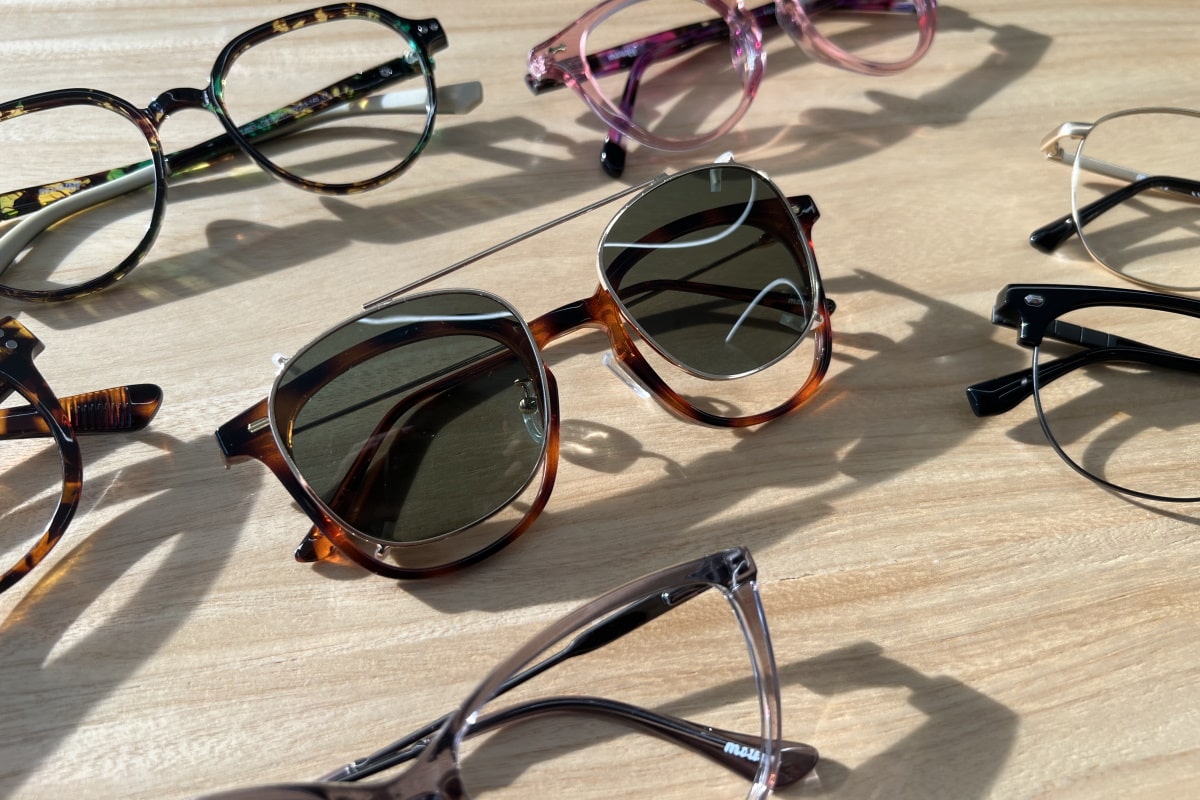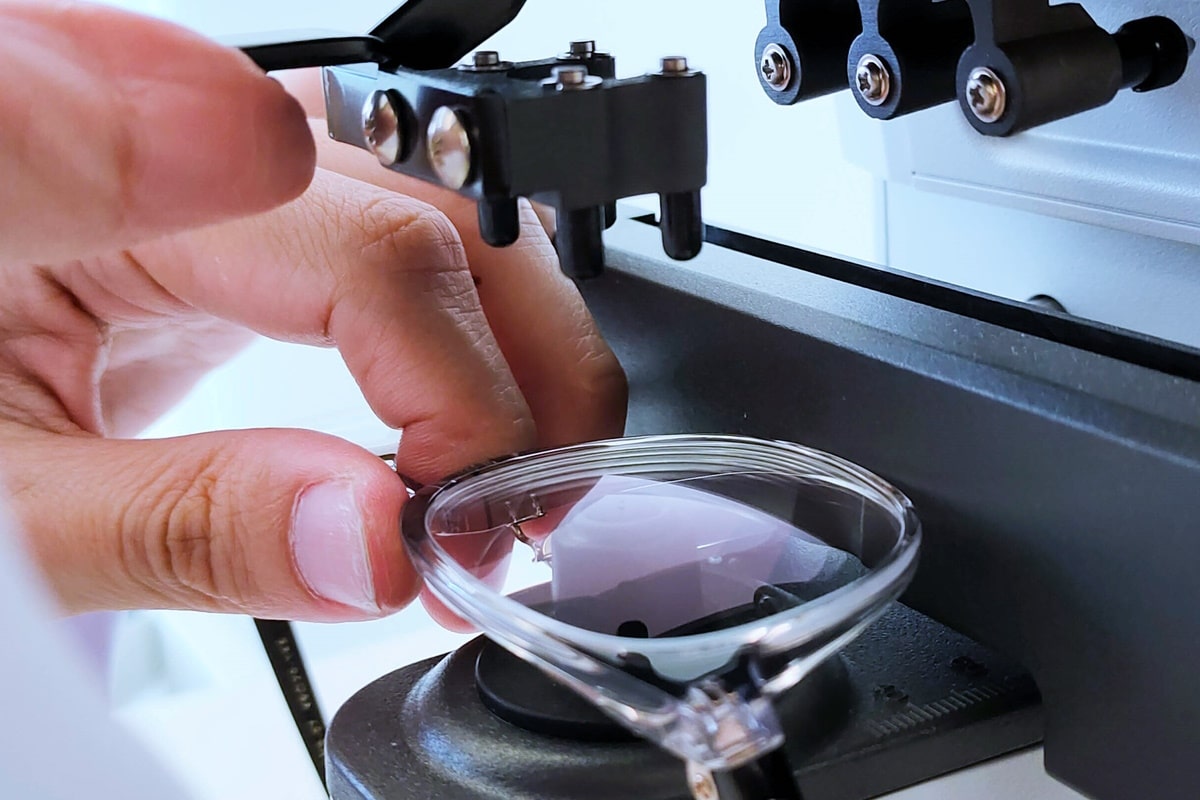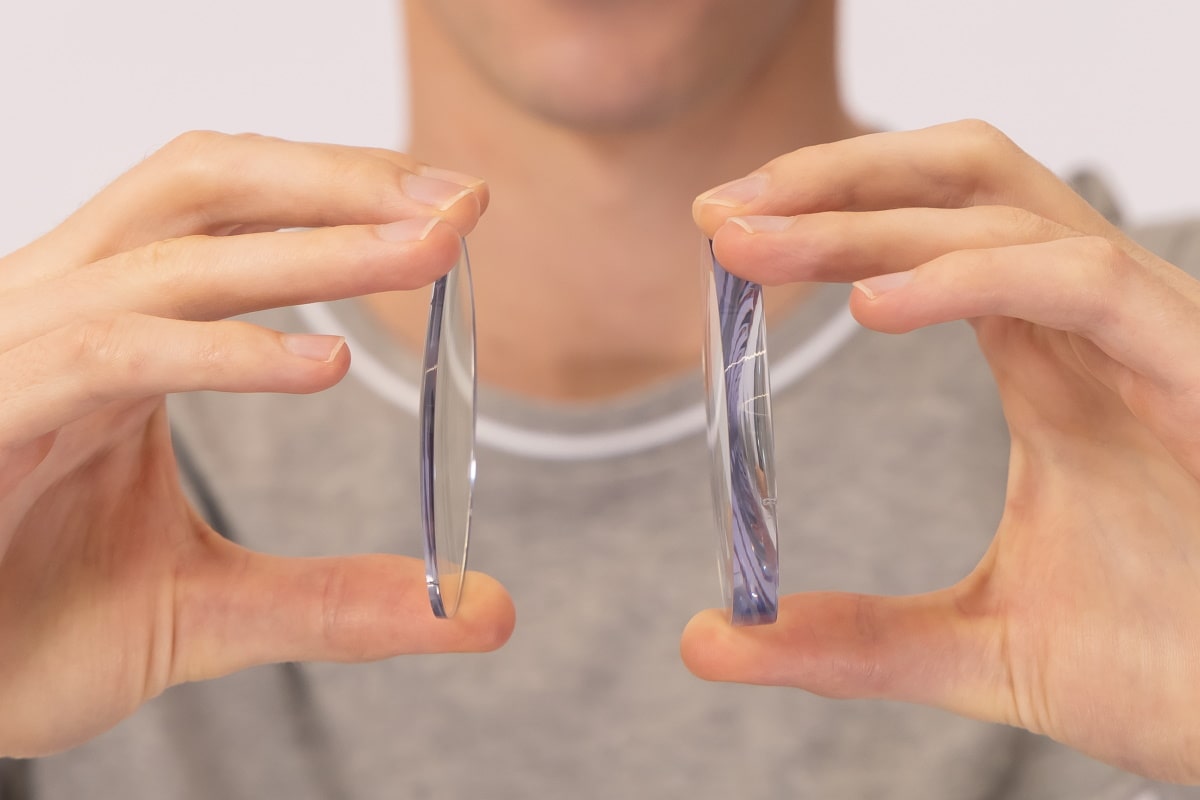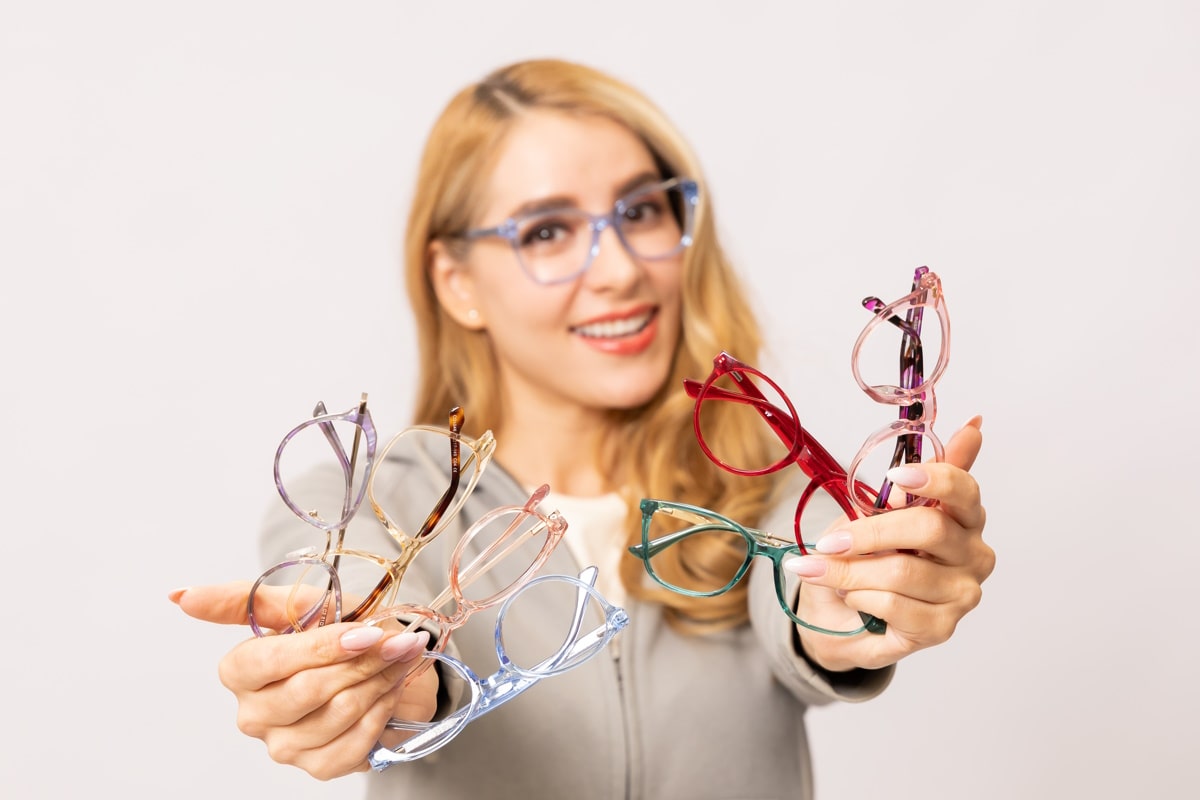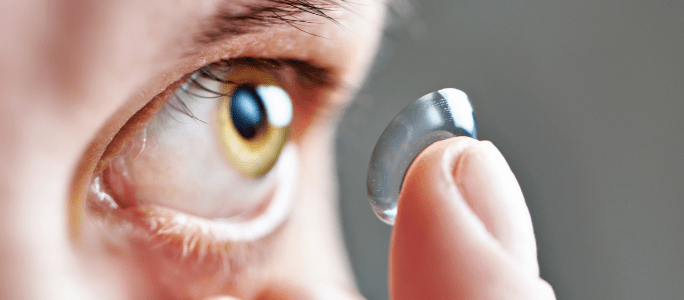Glasses vs. Contacts: Which Is Right for You?
Glasses and contact lenses are two very popular vision correction methods. Both provide a quick and reliable fix for farsightedness, nearsightedness, and astigmatism.
Depending on your prescription and lifestyle preferences, you might already prefer one type over the other. Many people use both glasses and contacts interchangeably.
To help you decide, we’ve explained the important differences, as well as their pros and cons.
Let’s find out which type of eyewear is best for you!
1. Using glasses
Made of two lenses set in a frame, glasses sit right in front of the eyes and bend light to properly focus on the retina – producing a clearer and sharper image.
There are many types of eyeglass lenses available depending on the vision concern/s you have, such as a slight difference in the shape of the eyeball or cornea, or multiple refractive errors.
Those with one vision concern (for example, farsightedness or astigmatism) will benefit from single vision lenses, while those with more than one concern may need multifocal lenses.
While glasses offer more benefits compared to contacts, they do have a couple of downsides that might be inconvenient for certain individuals.
Here are some pros and cons:
Benefits of opting for glasses
- They’re fuss-free and require minimal cleaning and care.
- They’re often more affordable in the long run. Even if your prescription changes over time, you can easily replace the lens while keeping your current frames, which is much cheaper than getting a brand new pair.
- Wearing glasses reduces the need to touch your eyes, making you less likely to catch an eye infection.
- Those with dry or sensitive eyes may be more comfortable in glasses since contact lenses can be drying when worn for long periods of time.
- Glasses can include functional coatings on their lenses, such as blue light blocking lenses to prevent digital eye strain.
- They make a great fashion accessory! There are a lot of fashionable frame styles to choose from, which lets you experiment with different looks.
Cons of wearing glasses
- They can block one’s peripheral vision (especially for those with thicker frames).
- Some people simply don’t like the look of glasses since they draw attention away from their facial features.
- Lenses with strong prescriptions can distort the eyes when worn. To prevent this, we’d recommend high index lenses.
- Eyeglasses can be affected by environmental factors such as rain or fog.
- Eyeglasses may be bothersome to athletes or those participating in extreme sports, as the frames can move around or even fall off on the field.
2. Using contact lenses
Contacts are thin curved lenses that sit directly on the surface of your eyes. Just like eyeglasses, there are also different kinds of contact lenses to choose from, depending on your needs and preferences:
Hard lenses
Also known as rigid gas permeable lenses, these contacts are durable, retain their shape, and have a lower risk of infection compared to other contact lens types (as long as they’re cleaned properly).
However, hard lenses also take more time to get used to compared to their softer counterparts, and may be uncomfortable when incorrectly placed.
Soft lenses
Much like its name suggests, soft lenses are known for their flexible quality, and are generally more comfortable and easier to adapt to compared to hard lenses. They also come with daily wear, extended wear, and disposable versions depending on how often you’ll need them – which will come in handy if you’re only using contacts for special occasions.
Unfortunately, soft lenses do come with a few drawbacks, such as being less durable, and having a higher risk of infection when not cleaned thoroughly.
Benefits of opting for contacts
- Contacts offer a wider field of view and won’t obstruct your peripheral vision.
- They provide vision correction without altering one’s appearance (e.g. frames covering facial features, eyeglass lenses distorting eye size, etc.)
- They are more comfortable for sports and outdoor activities, and you won’t need to worry about knocking them off as you’re moving around.
- They won’t interfere with safety gear or other accessories.
- You can opt for colored lenses to temporarily change your eye color.
- Contacts won’t get in the way of makeup application or cover parts of your eye makeup.
Cons of wearing contacts
- Contact lenses take a bit more effort to put on, remove, and clean.
- They are more expensive in the long run since they need to be replaced more frequently.
- Contacts reduce the amount of oxygen entering the eye, which can cause dry eye syndrome or irritation when used incorrectly.
- Poor hygiene and cleaning habits can easily cause irritation and eye infections.
- Contacts may not be compatible for those with dry or sensitive eyes.
What to consider when choosing between glasses or contacts
When deciding between glasses or contacts, it ultimately boils down to one’s lifestyle, budget, and comfort.
For example, those with an active lifestyle might find contacts more ideal as they won’t need to worry about glasses moving or falling off. Similarly, if you’re into outdoor activities such as hiking, trekking, or surfing, contacts will be more suitable as glasses can obstruct vision when wet or dirty.
Lastly, for those with jobs that require safety gear such as helmets, caps and goggles, contacts may be more appropriate as they won’t interfere with equipment.
On the other hand, those who don’t necessarily need contacts for aesthetic or performance reasons can go with glasses for a fuss-free optical solution.
But of course, there is also the option of switching between glasses and contacts depending on the occasion.
What about during COVID?
Because the coronavirus can spread through the eyes, nose and mouth, the American Academy of Ophthalmology (AAO) advises to switch to glasses for the time being, as contact lens wearers will need to touch their eyes more than the average person on a daily basis.
Moreover, while safety goggles are still your best defense from infected respiratory droplets, wearing glasses will still offer some protection compared to contact lenses.
Alternatives to contact lenses and eyeglasses
If you’re looking for other methods that would eliminate the need to use contacts or glasses daily, you may want to consider the following optical solutions:
- LASIK Eye SurgeryLASIK is the best known surgical treatment for vision correction, which involves using a special programmed laser to reshape the cornea. This procedure only takes less than 30 minutes and has a very low risk of side effects, with the AAO reporting a 90% success rate. However, the procedure may not be compatible for everyone, so it would be best to check with your eye doctor first to find out if LASIK is a viable option for you.
- Phakic Intraocular Lens (PIOL) ImplantsThis procedure involves placing soft, flexible lenses into the eye, which will sit in between the natural eye lens and iris. This type of treatment is recommended for those with astigmatism or a very high prescription.
- Orthokeratology, or Corneal Refractive TherapyThis treatment is also recommended for those with myopia or astigmatism, and involves wearing a special contact lens that reshapes the cornea overnight and helps the wearer see clearly the next day without contact lenses or glasses. However, this treatment does require consistency, as its effects can be reversed once the user stops wearing them nightly.
Thanks to advancements in technology, those with eyesight concerns now have a plethora of optical solutions to choose from, each with their own pros and cons.
Scheduling a consultation with your eye doctor can also help you narrow down your choices even further, as well as ensure that your prescription is up to date and prevent age-related eye diseases.
If you think glasses might be right for you, make sure you check out Mouqy’s wide collection of stylish frames for all occasions!

Written by:
Allysa Gatchalian

Reviewed by:
Dr. Melody Huang

